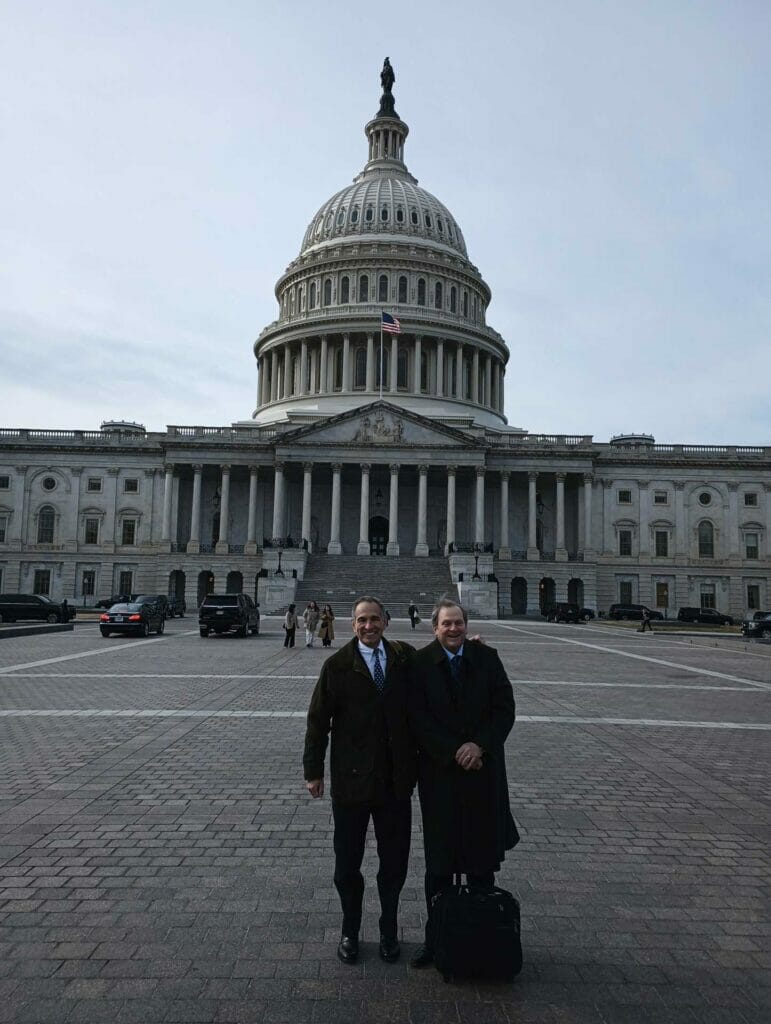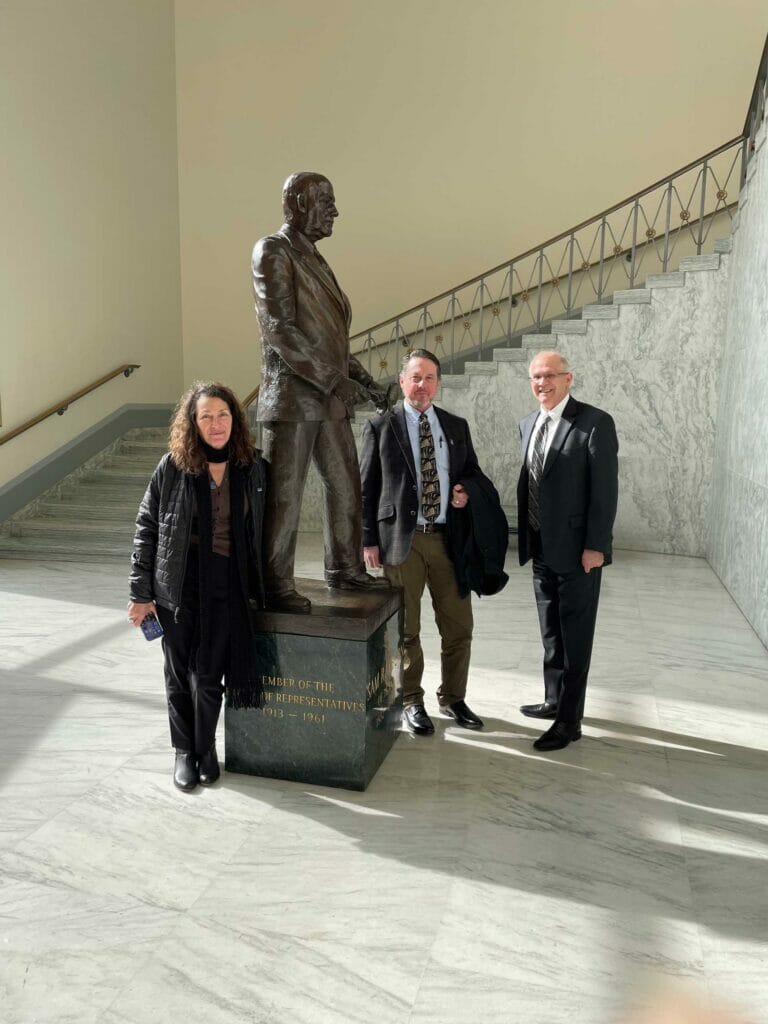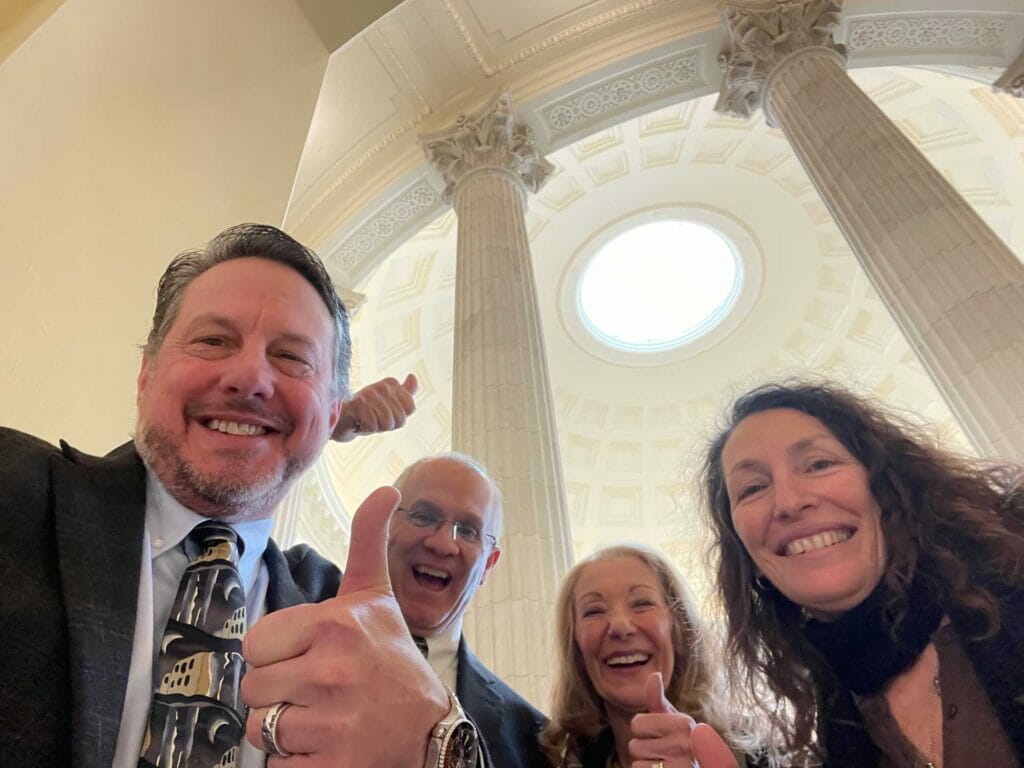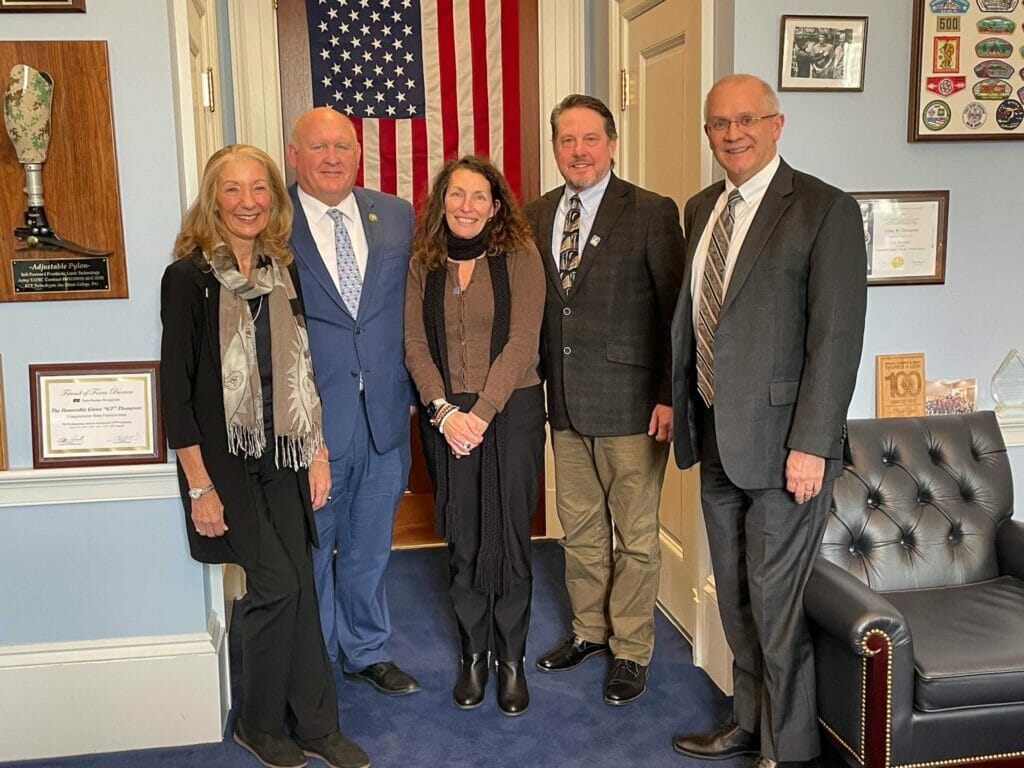Trustees launch the Trout Unlimited conservation agenda in the halls of Congress
With a new Congress convened and members sworn in, Trout Unlimited is carrying your voice to Washington to stand up for healthy trout and salmon, clean rivers and streams and protected public lands.
First to walk the halls this year: members of TU’s Board of Trustees, who converged on the Capitol to meet with lawmakers from nearly every corner of the country.
From long-time lodge and ranch operators to venture capitalists and communications executives, TU trustees bring a broad array of expertise to our organization. As businesspeople, educators, public servants, and community leaders, they are ideal messengers for TU’s conservation message. ‘





Trustee Rich Thomas, who has volunteered at all levels of Trout Unlimited, summed up the importance of TU’s D.C. advocacy work:
“As Trout Unlimited continues to grow as an organization, it is crucial we foster advocacy with our elected officials,” said Rich Thomas, secretary of TU’s National Leadership Council and a guide on the Upper Delaware River. “Our developing priorities are unique across many watersheds, and we need to ensure our legislators understand the importance of clean, cold water. This not only supports trout and salmon species, but acts as an indicator of the general health of our nation’s number one commodity, water.”
TU trustee Candice Price, a media leader showcasing diversity in the outdoor sports industry, said she went to Washington to tell the story about the on-the-ground conservation work that TU is spearheading.
“TU is an excellent organization that is getting the work done,” she said. “They have the receipts, and I personally have a long history of rolling up my sleeves as well, so for me it just made sense. We are at a crucial junction and there is no better group to move forward with on these important issues.”
TU’s trustees spearheaded TU’s advocacy on a full suite of conservation policy priorities. Here are a few highlights:
Investing in conservation
In the 2021-22 session, TU successfully advocated for Congress to enact historic laws investing in infrastructure and climate resiliency. Combined, the laws contain billions of dollars for conservation, including funding for watershed resiliency, aquatic passage, drought, and flood management that will provide great benefits for trout and salmon for decades to come.
Thanks to the funds made available through those laws, the Fish & Wildlife Service, Forest Service, NOAA, and Bureau of Reclamation have invested more than $80 million with TU for on-the-ground restoration work from California to West Virginia.
Now, as the 118th Congress begins, TU is urging lawmakers to ensure that the funding from these two laws is maintained at the fully authorized levels. Trustees asked their representatives to oppose cuts, keep existing conservation programs well-funded, and ensure that conservation agencies are well-staffed, so we do not miss this once-in-a-generation opportunity to improve America’s roads, forests, public lands, and fisheries.
Farm Bill: A conservation powerhouse
Every five years, Congress must reauthorize a critical package of legislation—known as the Farm Bill—that covers all things agriculture, including crop insurance, food production, and access to food for low-income families. The Farm Bill is also one of the most cost-effective and successful conservation programs in our nation’s history.
For over 50 years, TU has used Farm Bill conservation programs as an essential tool, working alongside farmers, ranchers, and conservation partners to improve fisheries and water quality.
Farm Bill reauthorization is coming in 2023, and TU is hard at work seeing these important federal dollars continue to fund coldwater conservation and that the Farm Bill remains the conservation powerhouse it has been for decades.
Abandoned Mine Cleanup
Across the country, 110,000 miles of streams—enough to circle the Earth four times—are listed as impaired by heavy metals or acidity. Abandoned mines are a major source of these impairments. Of these impaired stream miles, 20 percent are within sub-watersheds that contain native trout and salmon, and a whopping 52 percent are in sub-watersheds that are important drinking water sources.
Conservation organizations, watershed groups and state agencies want to help clean up abandoned mines but are prevented from doing so by incredible liability risks. In most cases, cleanups will greatly improve water quality, but meeting Clean Water Act standards may not be feasible, leaving the would-be “Good Samaritans” on the hook – forever – for pollution they didn’t create.
On the Hill this week, trustees advocated for the smart solution—Good Samaritan legislation. Under existing law, those who clean up mines are treated the same way as polluters, even if they had nothing to do with creating the damage in the first place. Good Sam abandoned mine mine clean up legislation would create a new pilot program to clear the way for for third-party entities like Trout Unlimited to clean up abandoned mines and begin to tackle this pervasive problem. TU hopes that Congress will build on the strongly bipartisan Senate good samaritan bill from last Congress, led by Senators Heinrich and Risch, by passing a good bill this new Congress.


